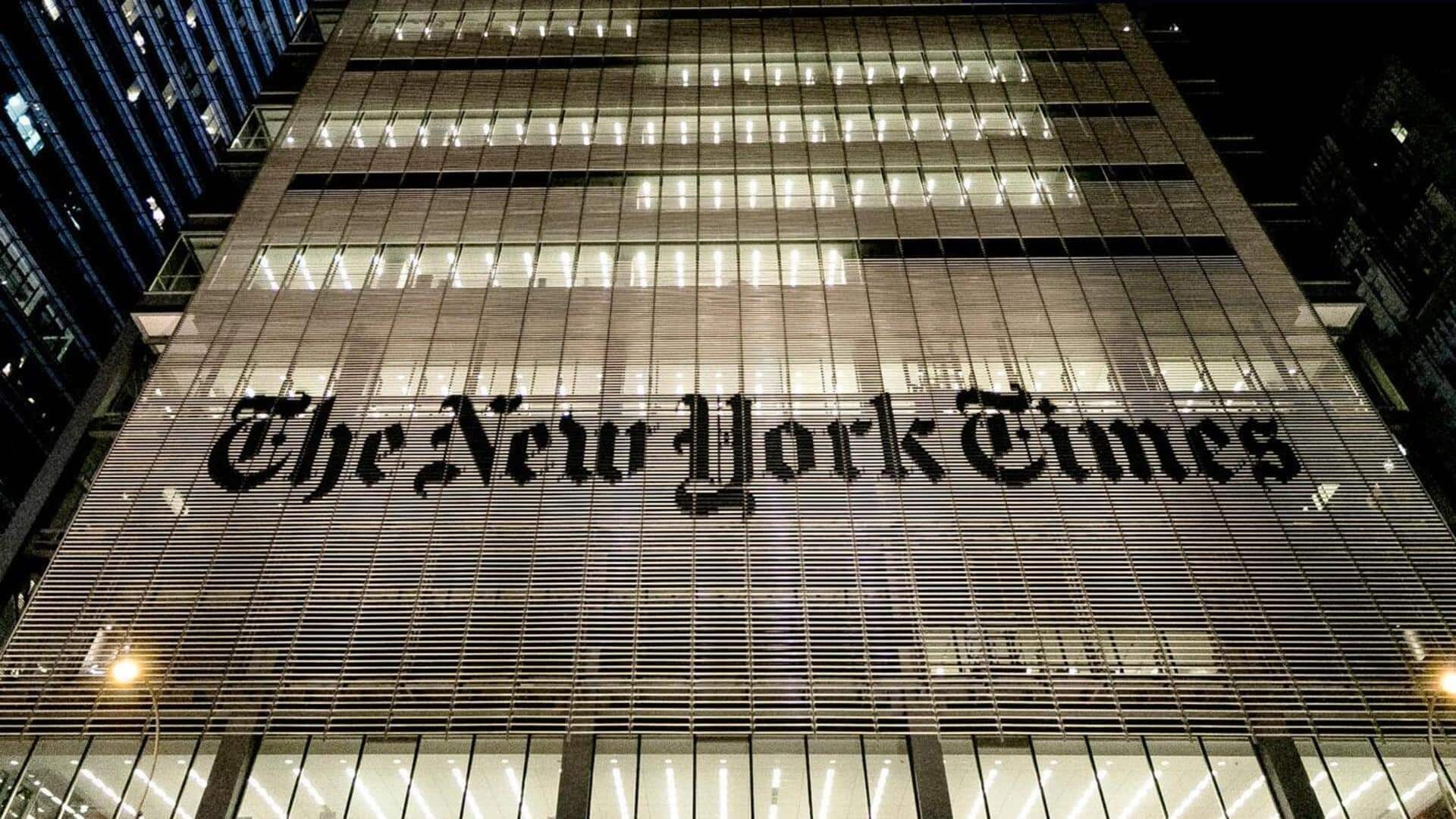
New York Times sues Microsoft and OpenAI over copyright infringement
What's the story
The New York Times (NYT) is suing Microsoft and OpenAI, the maker of ChatGPT, for copyright infringement and misusing the newspaper's intellectual property. NYT wants the companies to pay "billions of dollars" in damages for using millions of its articles without permission to train ChatGPT. This AI tool now rivals the newspaper as a reliable source of information.
Details
Loss of subscription revenue and advertising clicks
According to the lawsuit, ChatGPT generates exact copies of content from NYT, which is only available through paid subscriptions. This means people can read the content for free, causing the newspaper to lose money from subscriptions and website ads. Microsoft's Bing, a search engine that uses ChatGPT, also shows results from NYT-owned sites without linking to the articles or using referral links that generate income.
What Next?
Unsuccessful attempt at amicable resolution
NYT tried to resolve its copyright concerns with Microsoft and OpenAI in April but was unsuccessful. This lawsuit comes after a tumultuous time at OpenAI, where CEO Sam Altman was fired and then rehired within days after several back-and-forths. OpenAI is now dealing with multiple lawsuits filed in 2023, including a similar case from American authors like George RR Martin and John Grisham.
Insights
OpenAI's response to the lawsuit
In response to the lawsuit, an OpenAI representative said they were "surprised and disappointed" since their talks with NYT had been "productive and moving forward constructively." They hope to find a way to work together, as they are doing with other publishers. Microsoft has not commented on the issue yet. NYT is represented by Susman Godfrey, a law firm that won a $787.5 million settlement for Dominion Voting Systems in a defamation case against Fox News.
Facts
Growing concerns among publishers and content creators
This lawsuit shows growing concerns among media companies and content creators about AI programs like ChatGPT, Dall-E, Midjourney, and Stable Diffusion using their materials. These AI tools often create content that closely resembles the original source. OpenAI has tried to address these concerns by partnering with media company Axel Springer, which licenses its content to OpenAI for a fee. However, the financial details of this deal have not been revealed.